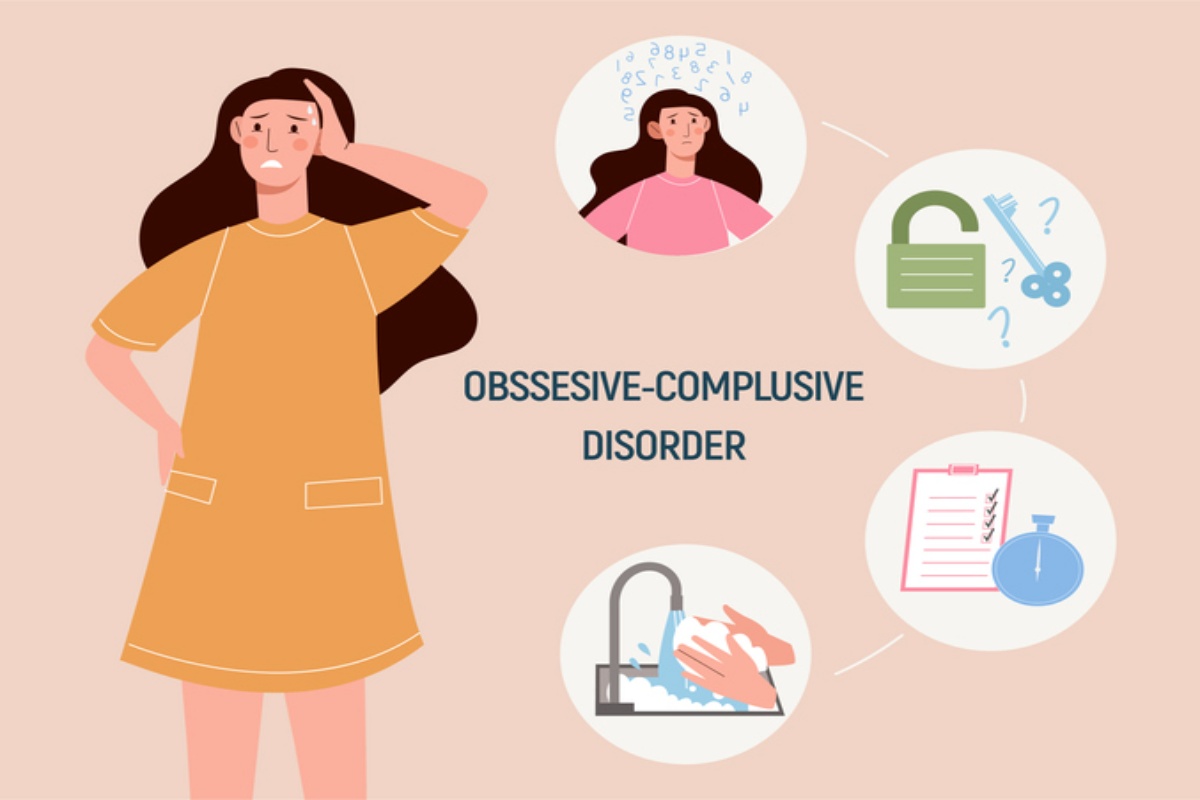A Quick Guide
Often times we hear the term OCD being casually misused today. The moment you hear the term OCD, you picture someone who is obsessed with cleaning and cannot stand the thought of germs. But that is not what OCD is all about. And if you have this disorder, then its symptoms can have a very negative impact on your daily functioning. Let’s discuss these symptoms in detail.
What is OCD?
OCD is characterized by a pattern of unpleasant thoughts (obsessions) that cause you to engage in repetitive actions (compulsions). These compulsive thoughts and behaviors disrupt daily life and cause severe distress.
You might make an effort to suppress or dismiss your obsessions, but doing so simply makes you feel more upset and anxious. Hence, in the end, you get forced to engage in obsessive behaviors in an effort to reduce your stress. Despite attempts to suppress or ignore unpleasant thoughts or impulses, they persist. So this feeds the OCD cycle, which results in more ritualistic behavior.
OCD Symptoms
Symptoms of OCD include both obsessions and compulsion which are defined ahead:
Obsessions
Obsessions with OCD are intrusive, recurrent, unwelcome thoughts, or desires that are distressing or anxious. You might try to avoid them and maybe eliminate them by engaging in a compulsive habit. Moreover, these obsessions usually interfere with your ability to think clearly or complete other tasks. Some common obsessions are the following:
- Being afraid of dirt or contamination
- Having doubts and finding it difficult to accept uncertainty
- Having ideas that are violent or horrifying about the loss of control and hurting oneself or others
- Inappropriate thoughts, such as those that are hostile or deal with sexual or religious issues
- Requiring symmetry and order in everything
Compulsions
Compulsions are recurrent activities that you feel compelled to carry out. These recurrent actions, whether physical or mental, are intended to ease tension brought on by your obsessions or avoid negative consequences. However, partaking in the compulsions is unpleasant and may only provide a short-term reduction in anxiety. Furthermore, these obsessions are excessive and frequently have no connection to the issue they are meant to solve. Some common compulsions are the following:
- Arranging everything in an order
- Checking different things constantly
- Cleaning and washing
- Maintaining a rigorous schedule
- Seeking reassurance
Watch: [How to Recognise Symptoms of Compulsion / OCD]
How is it diagnosed?
You should always consult a psychologist or a psychiatrist if you suspect that you may have OCD. The procedure for diagnosis is likely to involve the following:
- A physical examination to determine whether your symptoms are caused by a health issue.
- A psychological assessment of your thoughts, worries, compulsions, and behaviors.
- Blood tests to determine your thyroid function, blood count, and the presence of any alcohol or other drugs in your system.
Oftentimes people feel hesitant to consult a doctor for their symptoms based on the assumption that these signs may not be so serious. So, if you feel that way here are some tests you can take to get an idea of your symptoms.
- Psych Central: This is an easy-to-use screening tool. It has a total of 20 questions that you have to answer which may take you 5-8 minutes. It gives you your results immediately.
- ADDitude: This test has about 16 questions in total. It also gives you your results immediately. It may take you about 5 minutes to complete the test.
It is important to remember that these tests are not diagnostic tools. They are simply used so you have an idea whether you should visit a mental health professional for your symptoms.
We hope you found this article useful in understanding more about OCD, and its symptoms, along with some tests you can take to check if you have any symptoms that may be a cause for concern. Moreover, Learn more about OCD & OCPD: What’s The Difference?
To know more about the causes of OCD, check out this other article: What Are The Causes Of Obsessive Compulsive Disorder OCD? For more on treatment options for OCD, check out our article: Obsessive-Compulsive Disorder (OCD) Treatment



 What Are Some Types Of OCD & Their Symptoms?
What Are Some Types Of OCD & Their Symptoms?